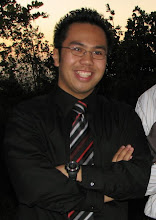
Above: Michael J. Fox on the cover of his 2002 memoir, A Lucky Man
"IF YOU WERE TO RUSH INTO THIS ROOM RIGHT NOW
AND ANNOUNCE THAT YOU HAD STRUCK A DEAL -
WITH GOD, ALLAH, BUDDHA, CHRIST, KRISHNA, BILL GATES, WHOMEVER -
IN WHICH THE TEN YEARS SINCE MY DIAGNOSIS
COULD BE MAGICALLY TAKEN AWAY, TRADED IN FOR
TEN MORE YEARS AS THE PERSON I WAS BEFORE,
I WOULD, WITHOUT A MOMENT'S
HESITATION, TELL YOU TO TAKE A HIKE."
©2002 Michael J. Fox
I remember sitting with my mom and dad watching the Back to the Future movies when they used to come out on network TV all the time in the early late 80s/early 90s (a quirk about us is that we NEVER ever had Cable). And there was a young actor on the screen (his name, Michael J. Fox) portraying the timeless character Marty McFly. I'll admit that his squeaky voice and priceless looks of shock when the time was right made his acting quite convincing. It was from then on that I became a fan of Fox, as I was always trying to catch reruns of Family Ties on vacations away from school (I was already too old to catch the first-run episodes) and moved onto some of his other films, one of my favorites (go figure) was Doc Hollywood in 1991.
And it is with that movie that Fox begins his 2002 memoir. With the recent release of Fox's new 2009 book, Always Looking Up, a story of how he has maintained his optimism with the onset of Parkinson's disease, I've decided to go backwards and read his last memoir (as my going to bed book), A Lucky Man.
1990. Gainesville, Florida. According to Fox in the first chapter, he mentioned how he initially thought that the first signal to his actual condition was the shaking of his pinky. He went to the University of Florida, near the location of his current filming to get a diagnosis. As I was reading, Fox's account of what the doctors had him go through seemed quite proposterous, including tasks similar to those of Sobriety Exams when the highway patrol pulls drunk people over and intense explorations of the opposable thumb. Unfortunately, the doctors didn't identify his disease through these series of examinations (also potentially due to the unusual age of the onset of his symptoms).
Now, let's flash to where I get my perspective on the same exams that Fox describes.
2009. Roseau, Dominica. In the weeks before our Physical Exam practical (see the entry "Inside the Mind of an Examining Med Student") a bunch of us Ross fifth semester students would get together in a room and drill through the numerous examination routines that we'd be tested on. Kinda just like a rehearsal for our great acting debut. In medical school, we have quite a long list of tasks grouped by each organ system (i.e. gastrointestinal, respiratory, etc.). And one of the great systems was Neurological. It wasn't exactly the most loved of all our exams as it was the longest. With our time limit of 10 minutes on the real exam to get through a whole systemic examination (selected by random) required much luck (or forgiveness from our respective proctors).
Above, as Fox describes those "intense explorations" of the thumb, I'm reading it with the perspective of a med student: during our scripted routines, we learned that rapid movement examinations, such as those involving the thumb, are checkups on our Cerebellum. One of the cerebellum's functions is to make sure we can do rapid, repetitive movements on a normal basis. And those "sobriety exams" are out there to make sure that a patient's sense of balance (with contributions from the Vestibular compartment within your ear), control, and ability in walking are intact, making sure that those critical connections between the brain and the muscles aren't, per se, "cut."
However, at our stage you may find it weird how we took those same dramatic routines that Fox described: With laughter.
It's odd. Sometimes as a medical student (inexperienced and all), I'll look at the stuff we do with a patient's perspective. It makes sense as I've been a patient for 23 years of my life, but in medicine technically only for almost two. As I was reading Fox's 2002 memoir, it made me realize that I need to start looking at the stuff we do in a new perspective: not anymore as those silly movements that any normal person could do, but with that idea that "everything has a purpose." Fox isn't wrong: the actions in the neurological exam have great ability to make even the smartest person in the world look like an idiot (they probably had him do the follow-the-finger-with-your-eyes-like-a-little-kid test for the muscles that move your eye). But in order for me to move on and be a clinician, I have to realize that these tasks we have to rehearse over and over in medical school, as silly as they seem, can carry multitudes of information towards potentially making a difference in someone's life.
Fox turns out to write a lot like me, utilizing italics in his manuscript to stress points and always interrupting his narration with self-thoughts and contradictions in order to get his point across. I highly recommend reading Lucky Man, and I'm definitely looking forward to reading Always Looking Up.


No comments:
Post a Comment